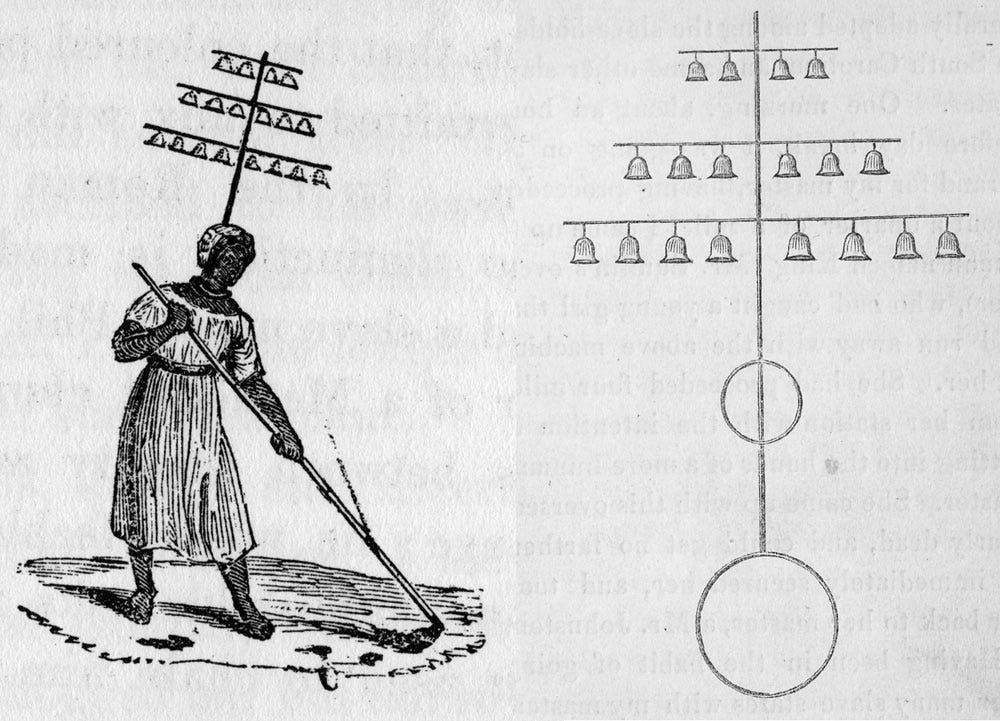Black Feminist Writing (Black Creative Worlds, Week Three)
"Facing the regular stress of academic writing is compounded by the need to write despite additional burdens of knowing your writing will not always be valued." - Stephanie Y. Evans
Black Creative Worlds is a community offering of notes, readings, and curriculum from my convening of Black Creative Worlds (a bit.ly/JHUBlackWorld seminar) in Spring 2025. Newsletters come out on Mondays from now through April with material for free and paid subscribers under the paywall jump. The full schedule is here.
For more on the Black World, including past seminar schedules and an essay about the Black World Seminar by Dr. Nathan Connolly visit: bit.ly/JHUBlackWorld.

This newsletter is a bit late; my apologies. I spent the weekend with my comai, Dr. Yomaira Figueroa-Vazquez in New York City. None of which would have normally stopped me from getting this out…except that I left my well worn, underlined, marked up copy of Stephanie Y. Evans Black Feminist Writing in the back pocket of a train seat.
The thing about switching back to analog reading and practicing divestment from Amazon? You fall back in love with paper books.
Now, I always loved books. I always loved writing, which is why this week’s book and visit from Dr. Evans has me fangirling hard. But the physical book? The pages, their feel under your fingers, the way paperbacks bend in your hand, the scratch of a really good pen when you underline or leave a note in the margin….whew, that’s seduction. That’s delicious. That’s my heartbreak losing this copy, knowing I’ll go buy a new one but she won’t be the same.
If you’re somewhere along the Northeast corridor and you find a deeply loved copy of Black Feminist Writing, please enjoy it.
So this newsletter might be late, but drafting it without the book right on hand gave me a chance to wander a bit in the readings and questions below. Let me know what you think and, as always, an activity and a longer reflection below the paywall.
This Week We Are Reading:
Stephanie Y. Evans, Black Feminist Writing: A Practical Guide to Publishing Academic Books (State University of New York Press, 2024).
“What Are Emergent Strategies,” Andrea Ritchie, Practicing New Worlds: Abolition and Emergent Strategies (La Vergne: AK Press, 2023).
Foundations of Black Womens’ Studies: https://foundationsofbwst.net/
Discussion Questions
How do you create the conditions to write? Whatis your optimal writing environment?
How does Evans describe what writing does for her, above and beyond what she uses writing to do (i.e. research, publish)?
Evans described writing as something she has grown to enjoy and love. But she didn’t always feel that way. What is your relationship to writing?
If you are university-affiliated or adjacent, why do you think academic writing has such a reputation for being hard, brutal, even traumatizing?
Describe your writing community? If you don’t have one, how might you cultivate one?
Black women’s studies scholarship is throughout this text. In fact, it would seem that Evans made a deliberate decision to cite almost all Black women scholars. How is your citation practice reflecting your political practice or the politics of the research you do? Where can it be strengthened?
Evans citation practice evidences the “interconnected networks and communities of practice” described as a “system of influence” cited in Ritchie. Is a “system of influence” a discipline?
It would seem that to get to abolition, we need to create and expand our “system of influence.” Where else in your work do you see systems of influence? What are its rules, rituals, and cultures ?
Choose a metaphoric emblem generated by Complex Movements and write about the way you see that strategy showing up (or not) in your life?
Suggested Readings
Noelle Toumey Reetz, “Self Care as an Act of Resistance - Black Women and Wellness,” Georgia State News Hub (blog), June 7, 2021, https://news.gsu.edu/research-magazine/self-care-black-women-yoga.
Alexis Pauline Gumbs, “We Can Learn to Mother Ourselves": A Dialogically Produced Audience and Black Feminist Publishing 1979 to the" Present,” in Gender Forum (Prof. Dr. Beate Neumeier, 2008), N_A, http://search.proquest.com/openview/d67dace6a0d33569ab43e9024b36c948/1?pq-origsite=gscholar&cbl=29335.
Barbara Smith, Home Girls: A Black Feminist Anthology Rutgers University Press, 1983).
Courtney Thorsson, The Sisterhood: How a Network of Black Women Writers Changed American Culture (New York: Columbia University Press, 2023).
Nell Irvin Painter, I Just Keep Talking: A Life in Essays (Doubleday, 2024).
Patricia Bell-Scott and Juanita Johnson-Bailey, Flat-Footed Truths: Telling Black Women’s Lives, 1st edition (New York: Henry Holt and Co., 1998)
Mari Evans, Black Women Writers (1950-1980): A Critical Evaluation, 1st edition (Garden City, N.Y: Knopf Doubleday Publishing Group, 1984).
Mayra Santos-Febres, Sobre Piel Y Papel/over Skin And Paper, 2nd edition (San Juan, Puerto Rico: Ediciones Callejon Inc, 2011).
Odile Ferly, A Poetics of Relation: Caribbean Women Writing at the Millennium (Springer, 2012).
Hanétha Vété-Congolo, The Caribbean Oral Tradition: Literature, Performance, and Practice (Springer, 2016).
Carole Boyce-Davies, Black Women, Writing and Identity: Migrations of the Subject (London: Routledge, 2002), https://doi.org/10.4324/9780203201404.
Toni Cade Bambara, The Black Woman: An Anthology Simon and Schuster, 2010).
Claudia Tate, ed., Black Women Writers at Work (La Vergne: Haymarket Books, 2023).



